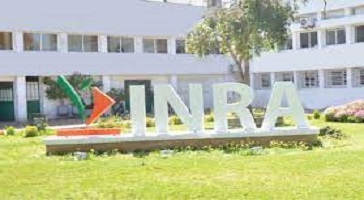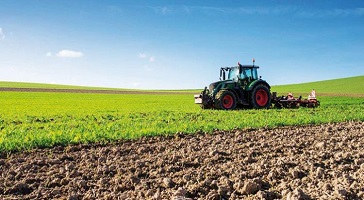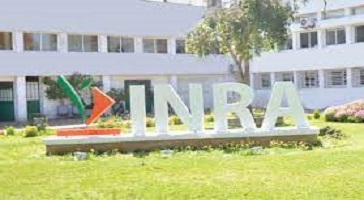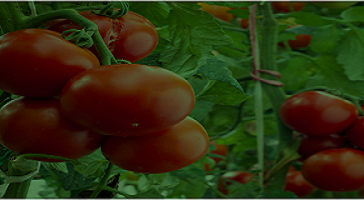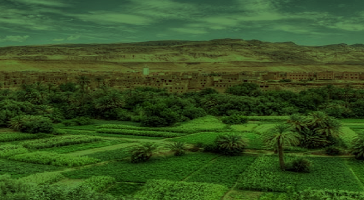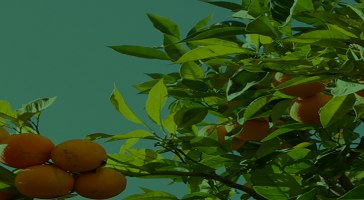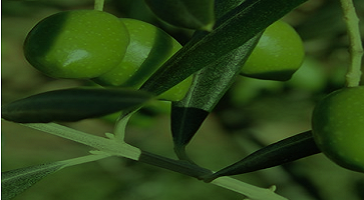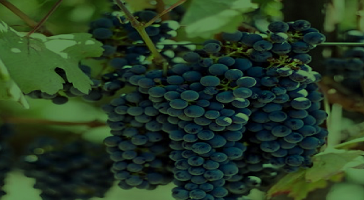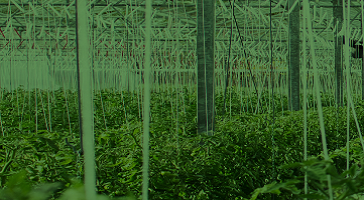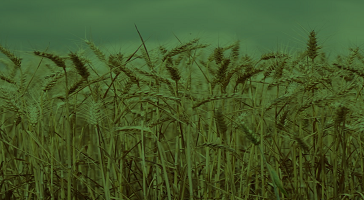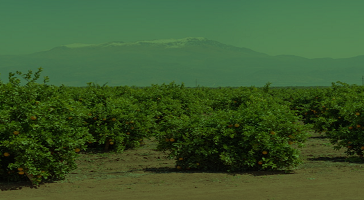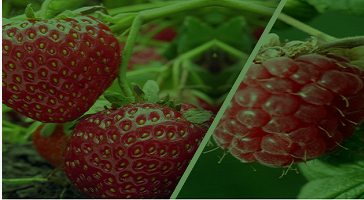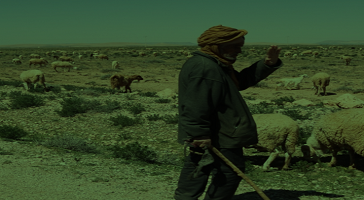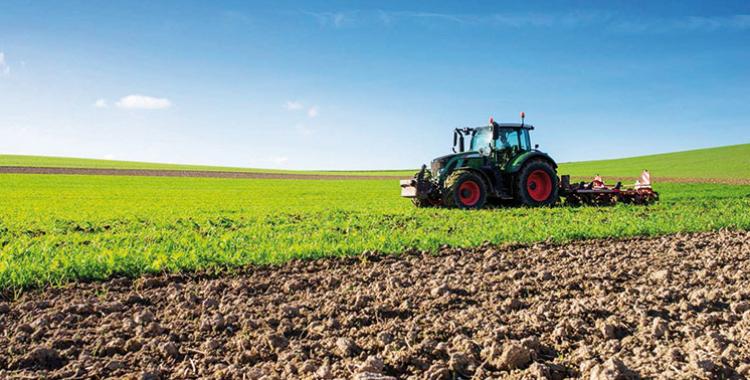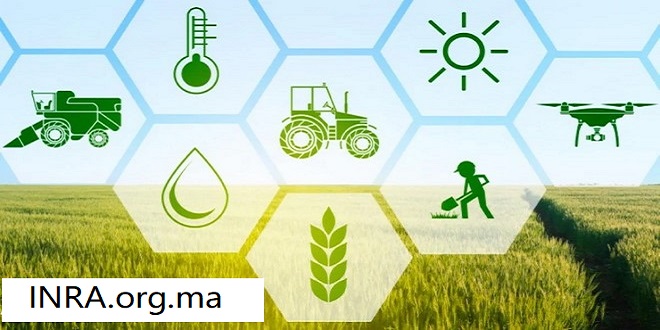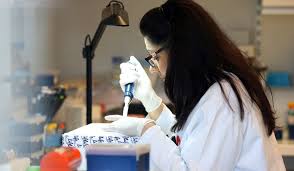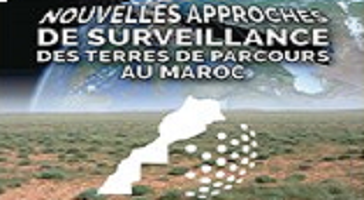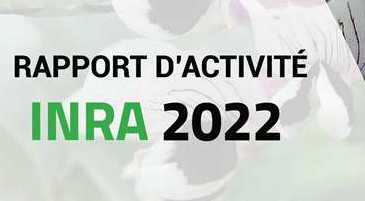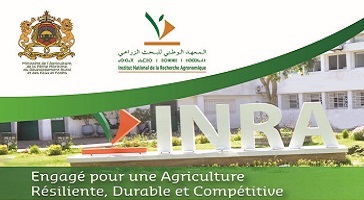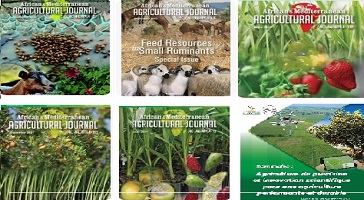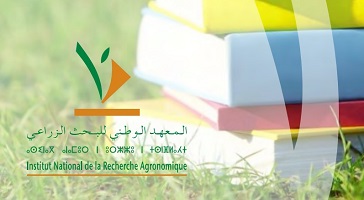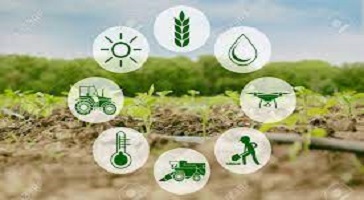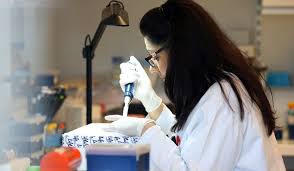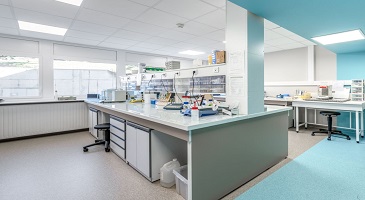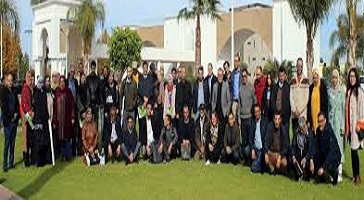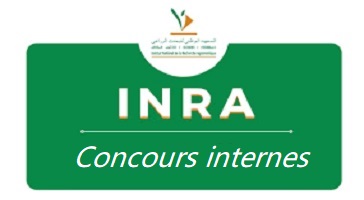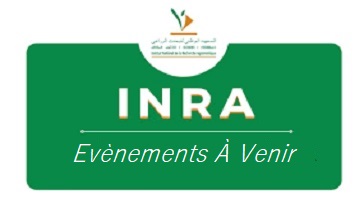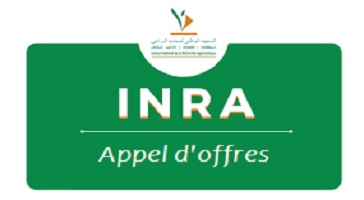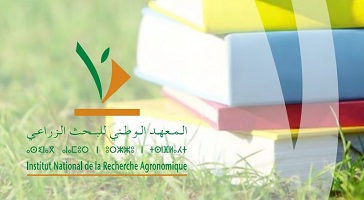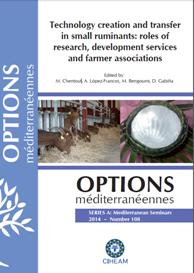
Technology creation and transfer in small ruminants: roles of research, development services and farmer associations
Chentouf M. (ed.), López-Francos A. (ed.), Bengoumi M. (ed.), Gabiña D. (ed.). Technology creation and transfer in small ruminants: roles of research, development services and farmer associations. Zaragoza : CIHEAM / INRAM / FAO, 2014. 544 p. (Options Méditerranéennes : Série A. Séminaires Méditerranéens; n. 108). 8. Seminar of the FAO-CIHEAM Sub-Network on Production Systems, 2013/06/11-13, Tangier (Morocco).
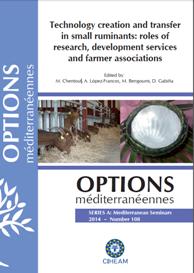
Lien au site: CIHEAM, Opions Méditérannéennes
Résumé:
Small ruminants are important for income generation and security, food supply and for development in rural Mediterranean areas especially in mountainous and marginal regions. Nevertheless, the adoption of cost-effective technologies and management practices for improving flock productivity and farmers' incomes is limited. This is largely due to socio-economic factors, such as the marginal areas in which they produce or the low capitalization of farms, but also to the lack of adaptation of these technologies to field conditions. Innovation creation, adaptation and transfer are integrated steps in the adoption of successful technology by farmers and their associations. The results from each step of this pathway contribute to global success in the adoption approach, where improvements are simultaneously technical, economic, social and institutional. This volume collects 69 articles of contributions presented at the 8th Seminar of the FAO-CIHEAM Sub-Network on Production Systems (Tangier, Morocco, 11-13 June 2013), organised by the National Institute of Agricultural Research of Morocco (INRA), through the Regional Center of Agricultural Research (CRRA) of Tangier, and the Mediterranean Agronomic Institute of Zaragoza (IAMZ-CIHEAM), with the collaboration of the Food and Agriculture Organization of the United Nations (FAO). The Seminar encouraged participation and interaction among scientists and technicians involved in small ruminant production systems, with a view to: (1) analyse the evolution and efficacy of the technologies developed during the last decades; (2) evaluate the existing small ruminant research structures and programmes in the Mediterranean region and discuss approaches and major results; and (3) present and analyse technology transfer models and tools highlighting the specific roles of the different stakeholders, such as public administrations, farmers associations and private companies.

